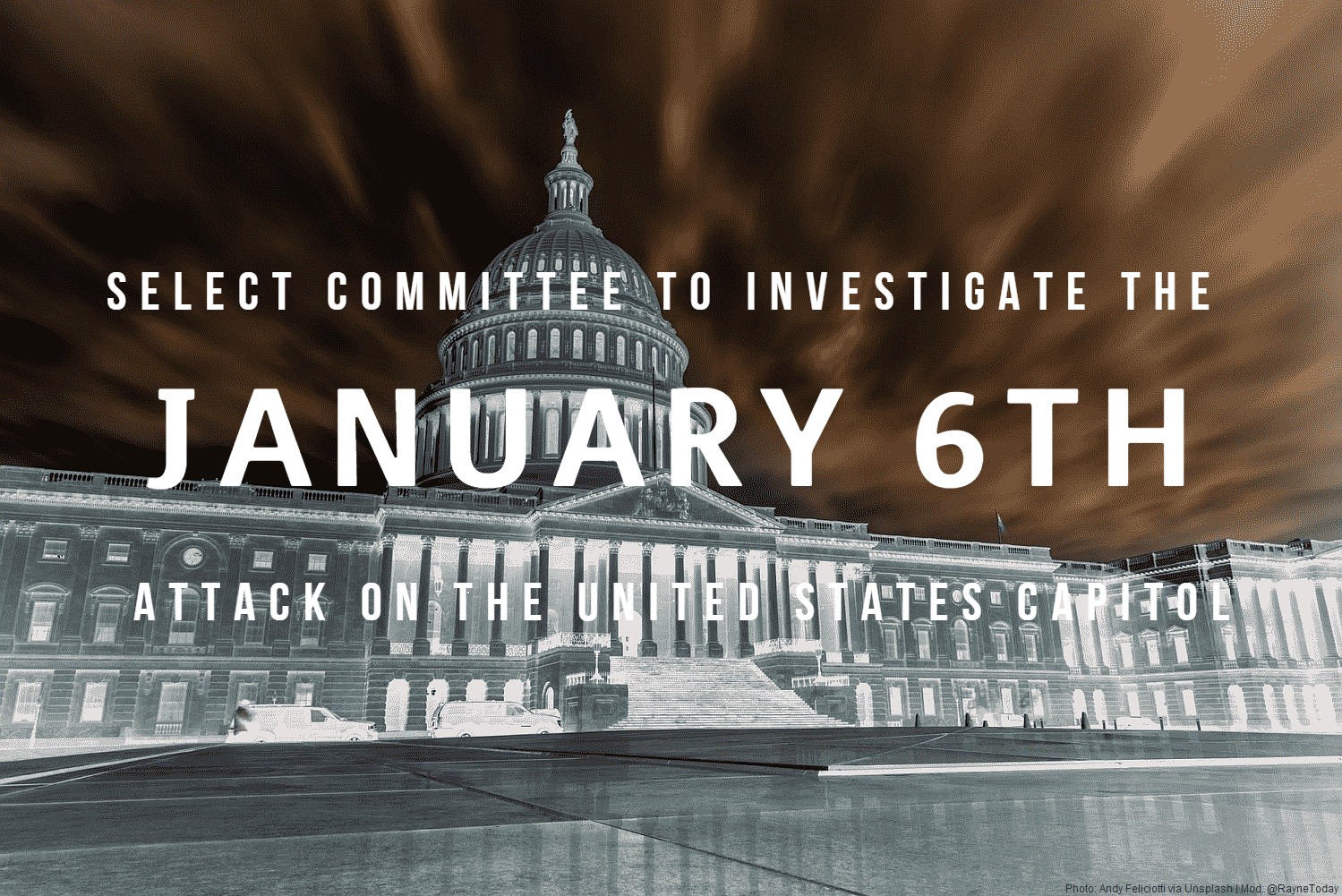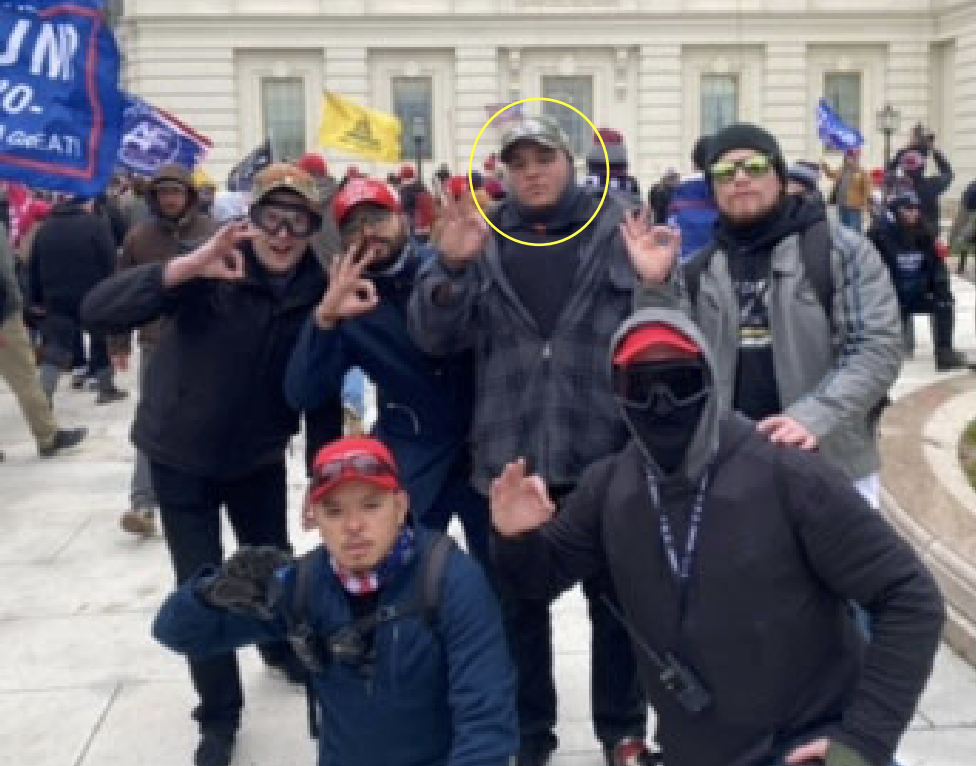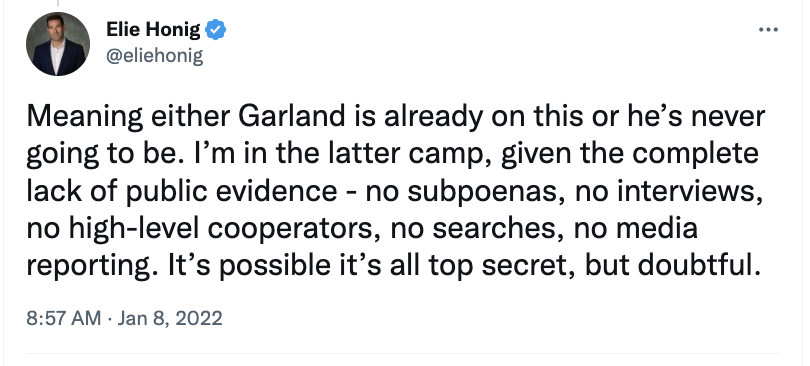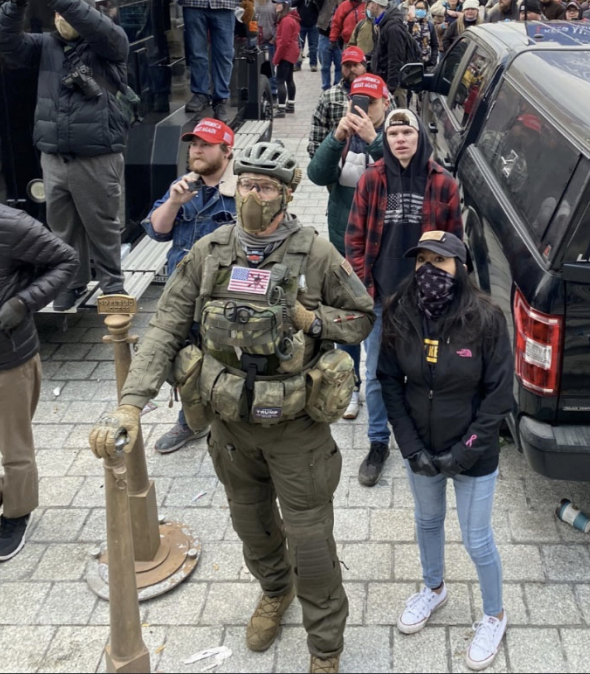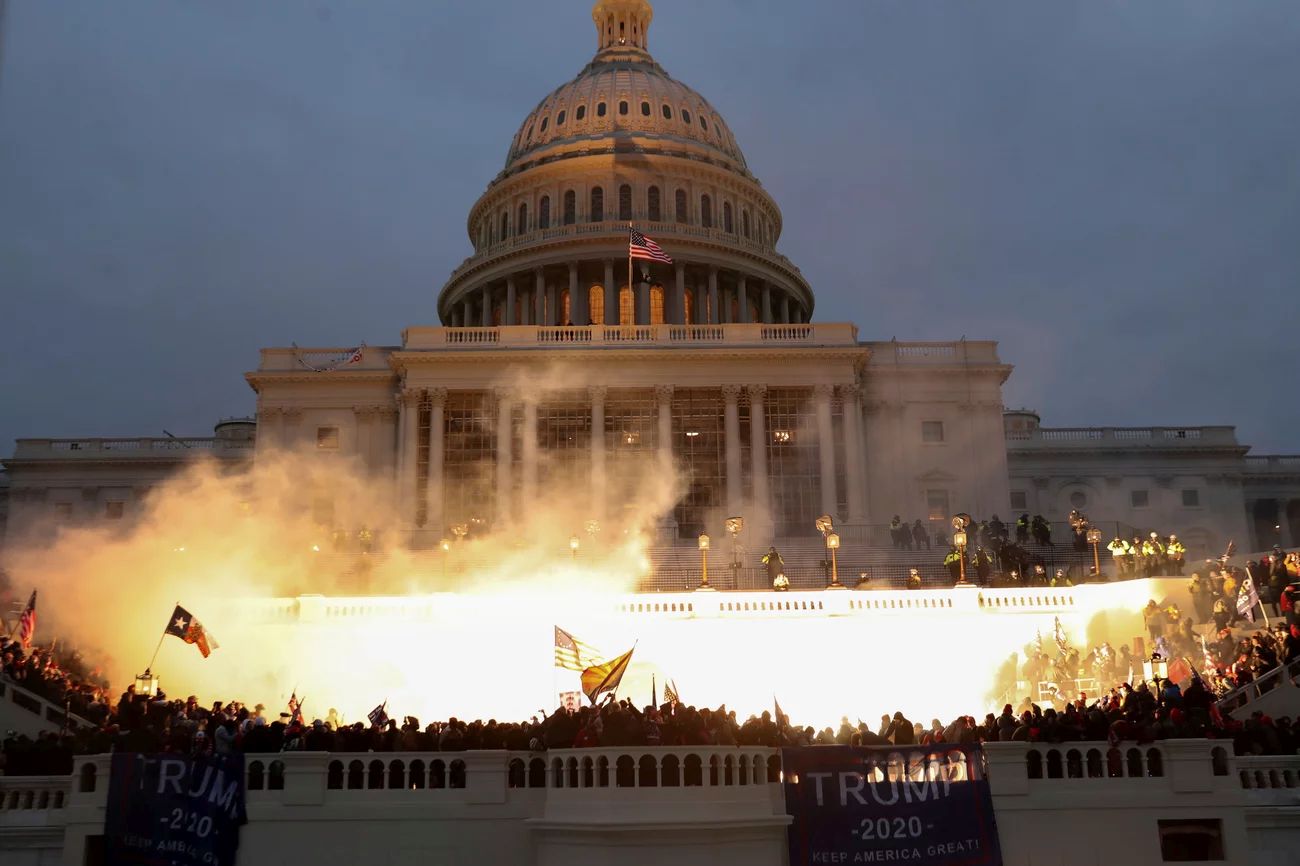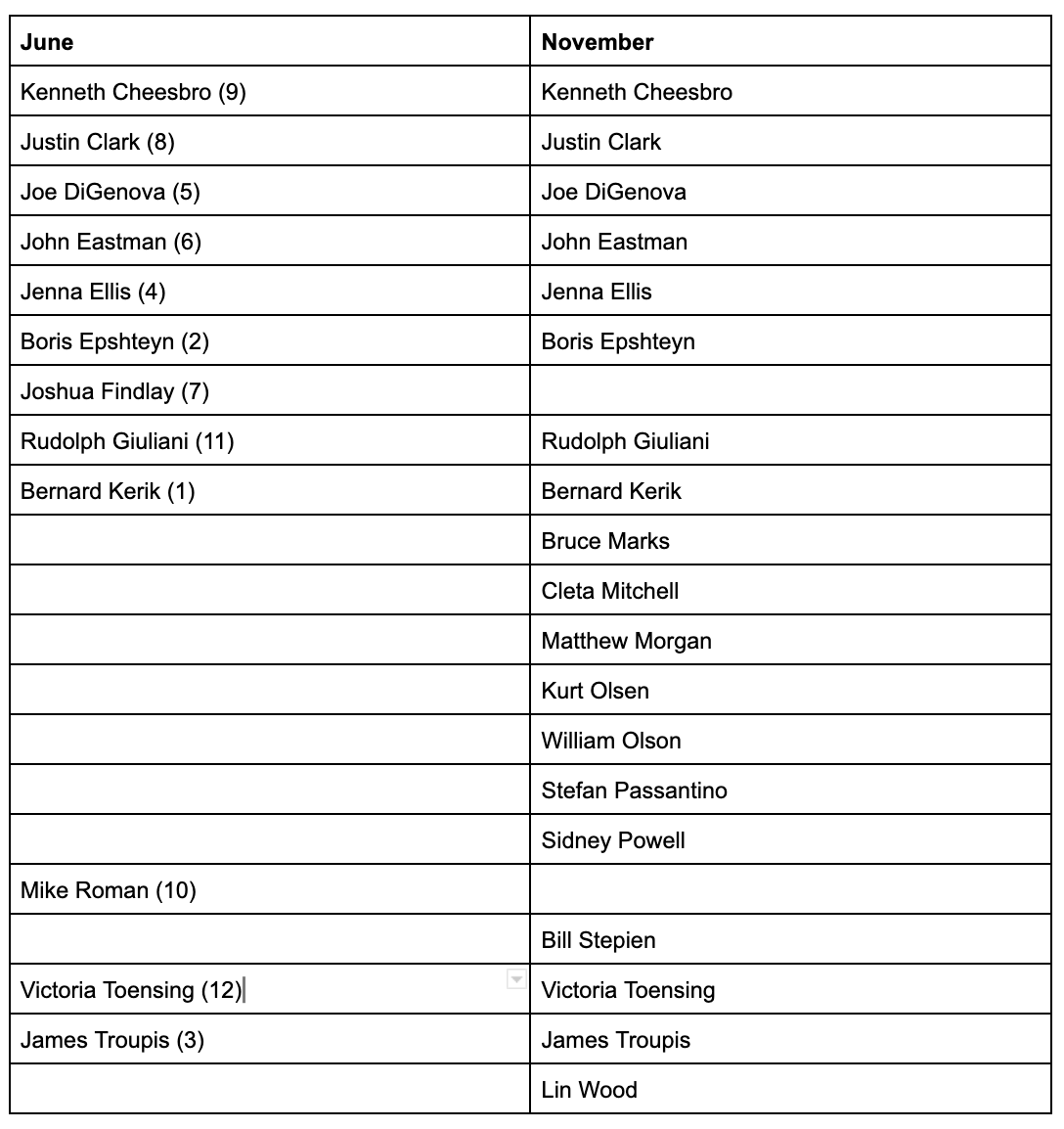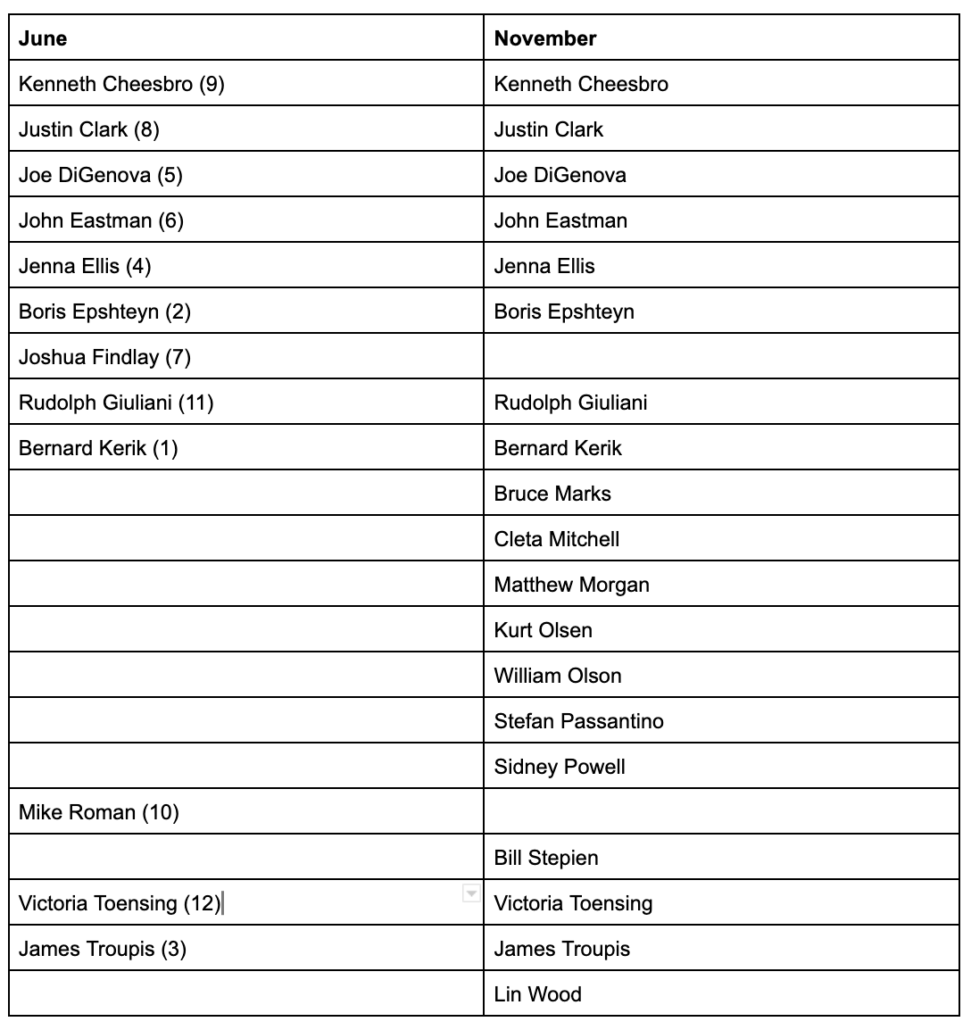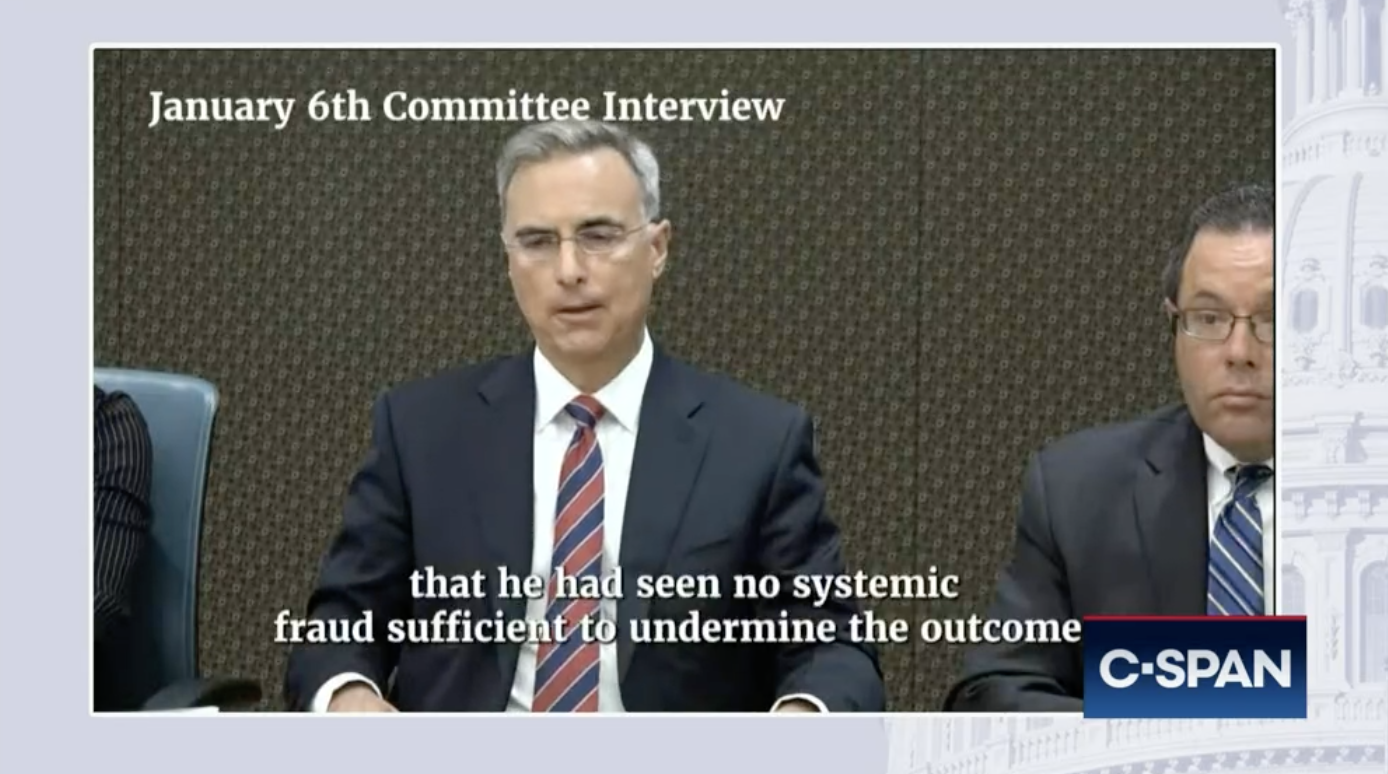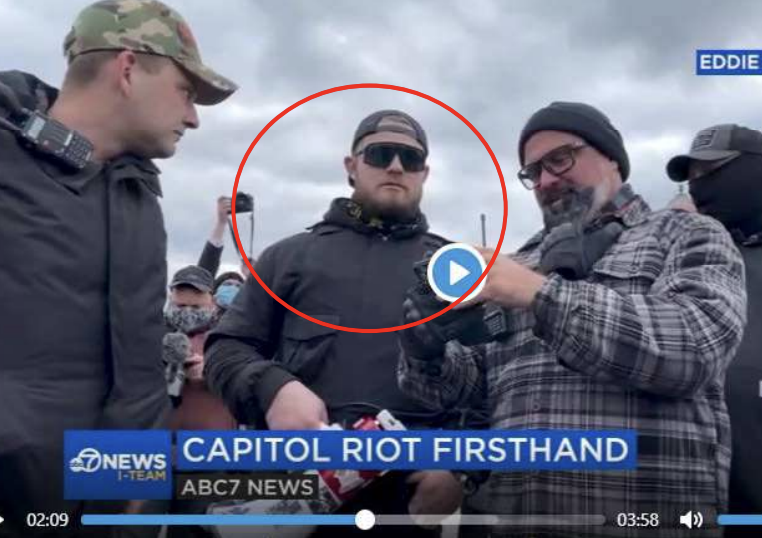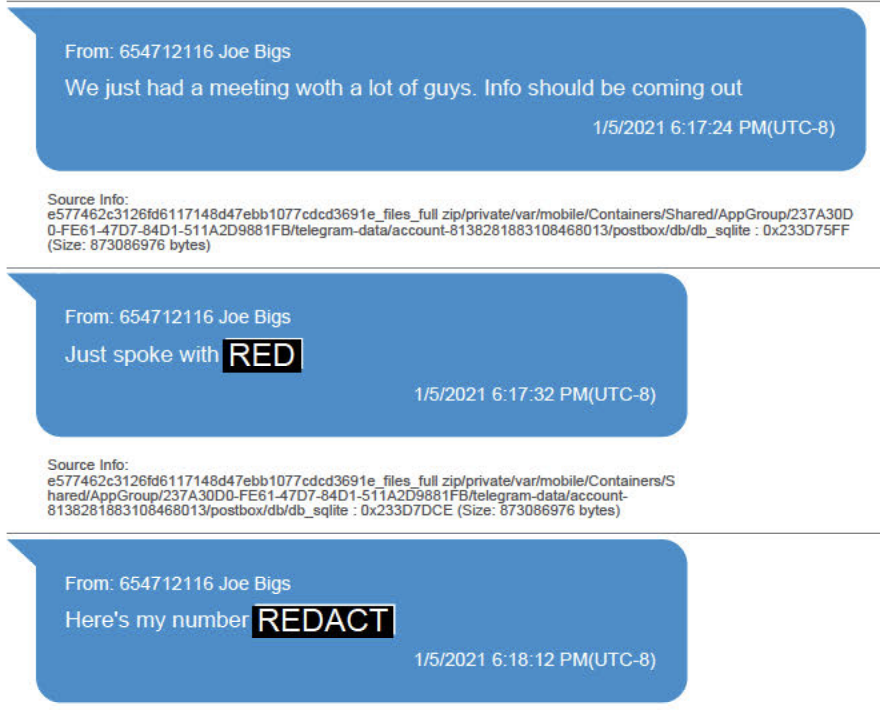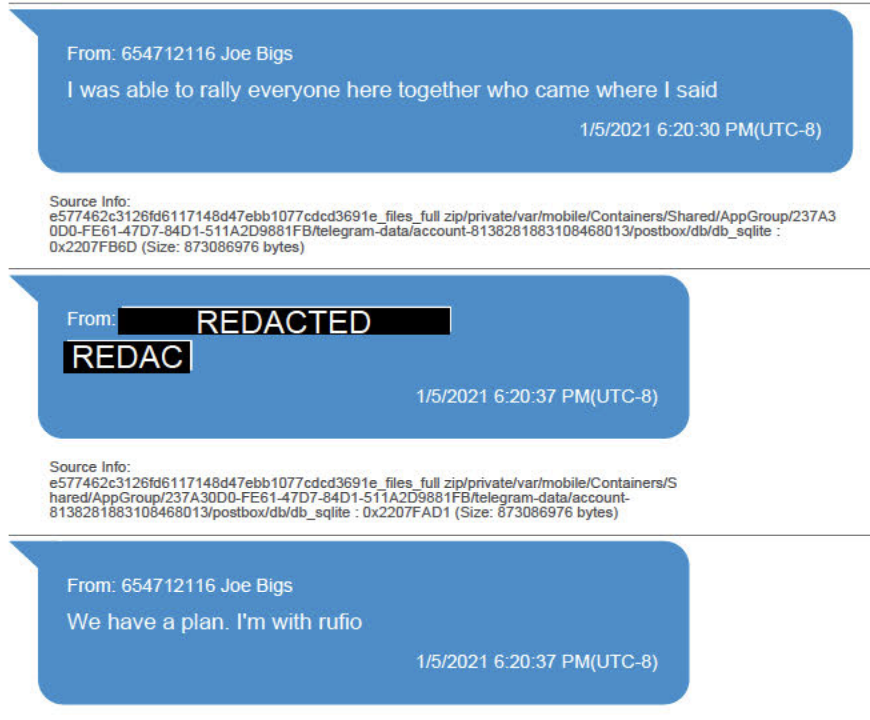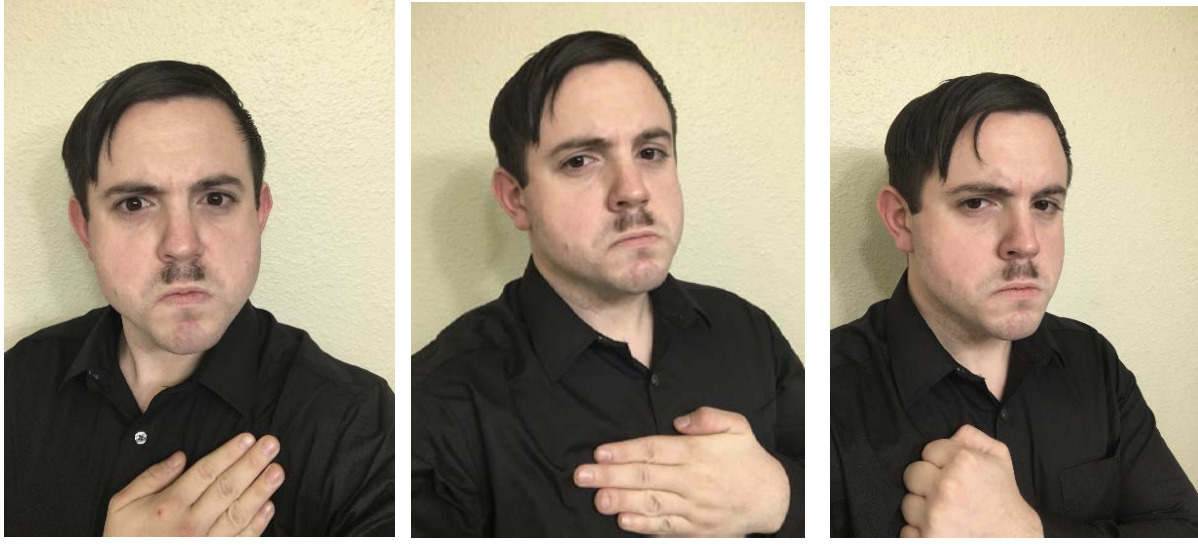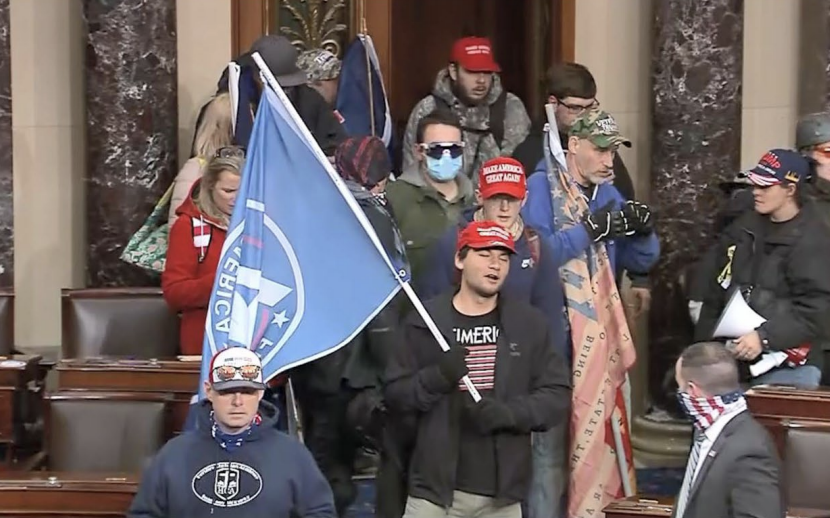The Thinness of the January 6 Committee’s Obstruction Referral
I’m back (in Ireland after a visit to the US)!
I just finished a detail read of the Executive Summary released by the January 6 Committee. See this Mastodon thread for my live read of it.
I’d like to address what it says about referrals.
In the big dispute between bmaz and Rayne about the value of referrals, I side, in principle, with Rayne. I have no problem with the Committee making criminal referrals, especially for people not named Donald Trump. Some of the most damning details in the report involve details about how Kayleigh McEnany, Ivanka, and Tony Ornato turned out to not recall things that their subordinates clearly remembered (Pat Cipollone probably falls into that same category but the Committee gave him a pass for it) and how what must be Cassidy Hutchinson’s original lawyer fucked her over — details that would support an obstruction of the investigation referral.
Here’s an example of the former:
While some in the meeting invoked executive privilege, or failed to recall the specifics, others told us what happened at that point. Sarah Matthews, the White House Deputy Press Secretary, had urged her boss, Kayleigh McEnany, to have the President make a stronger statement. But she informed us that President Trump resisted using the word “peaceful” in his message:
[Q]: Ms. Matthews, Ms. McEnany told us she came right back to the press office after meeting with the President about this particular tweet. What did she tell you about what happened in that dining room?
[A]: When she got back, she told me that a tweet had been sent out. And I told her that I thought the tweet did not go far enough, that I thought there needed to be a call to action and he needed to condemn the violence. And we were in a room full of people, but people weren’t paying attention. And so, she looked directly at me and in a hushed tone shared with me that the President did not want to include any sort of mention of peace in that tweet and that it took some convincing on their part, those who were in the room. And she said that there was a back and forth going over different phrases to find something that he was comfortable with. And it wasn’t until Ivanka Trump suggested the phrase ‘stay peaceful’ that he finally agreed to include it.”525
[snip]
Kayleigh McEnany was President Trump’s Press Secretary on January 6th. Her deposition was taken early in the investigation. McEnany seemed to acknowledge that President Trump: (1) should have instructed his violent supporters to leave the Capitol earlier than he ultimately did on January 6th; 710 (2) should have respected the rulings of the courts;711 and (3) was wrong to publicly allege that Dominion voting machines stole the election.712 But a segment of McEnany’s testimony seemed evasive, as if she was testifying from preprepared talking points. In multiple instances, McEnany’s testimony did not seem nearly as forthright as that of her press office staff, who testified about what McEnany said.
For example, McEnany disputed suggestions that President Trump was resistant to condemning the violence and urging the crowd at the Capitol to act peacefully when they crafted his tweet at 2:38 p.m. on January 6th. 713 Yet one of her deputies, Sarah Matthews, told the Select Committee that McEnany informed her otherwise: that McEnany and other advisors in the dining room with President Trump persuaded him to send the tweet, but that “… she said that he did not want to put that in and that they went through different phrasing of that, of the mention of peace, in order to get him to agree to include it, and that it was Ivanka Trump who came up with ‘stay peaceful’ and that he agreed to that phrasing to include in the tweet, but he was initially resistant to mentioning peace of any sort.”714 When the Select Committee asked “Did Ms. McEnany describe in any way how resistant the President was to including something about being peaceful,” Matthews answered: “Just that he didn’t want to include it, but they got him to agree on the phrasing ‘stay peaceful.’”715
The Committee invites the public to compare McEnany’s testimony with the testimony of Pat Cipollone, Sarah Matthews, Judd Deere, and others, [punctuation original]
It turns out the latter example — of the lawyer Trump originally provided for Cassidy Hutchinson directing her testimony — doesn’t need to be referred in this report. That’s because, the report makes clear, the Committee already shared those details with DOJ (or knew them to be shared under the guidance of Hutchinson’s new lawyer, Jody Hunt).
The Select Committee has also received a range of evidence suggesting specific efforts to obstruct the Committee’s investigation. Much of this evidence is already known by the Department of Justice and by other prosecutorial authorities. For example:
[snip]
- The lawyer instructed the client about a particular issue that would cast a bad light on President Trump: “No, no, no, no, no. We don’t want to go there. We don’t want to talk about that.”;
- The lawyer refused directions from the client not to share her testimony before the Committee with other lawyers representing other witnesses. The lawyer shared such information over the client’s objection;
- The lawyer refused directions from the client not to share information regarding her testimony with at least one and possibly more than one member of the press. The lawyer shared the information with the press over her objection.
- The lawyer did not disclose who was paying for the lawyers’ representation of the client, despite questions from the client seeking that information, and told her, “we’re not telling people where funding is coming from right now”;
- The client was offered potential employment that would make her “financially very comfortable” as the date of her testimony approached by entities apparently linked to Donald Trump and his associates. Such offers were withdrawn or did not materialize as reports of the content of her testimony circulated. The client believed this was an effort to impact her testimony.
That’s a testament that, even with regards to crimes that victimized the investigation itself, DOJ already has the details to pursue prosecution. This is a symbolic referral, not a formal one, even for the crimes that the Committee would need to refer.
As to the more significant referrals, you’ve no doubt heard that the Committee referred four major crimes:
- 18 USC 1512(c)(2): obstruction of the vote certification
- 18 USC 371: conspiracy to defraud the US in the form of obstructing the certification of the election
- 18 USC 371 and 18 USC 1001: conspiracy to present false statements — in the form of fake elector certifications — to the National Archives
- 18 USC 2383: inciting, assisting, or aiding an insurrection
I don’t so much mind that the Committee made these referrals. But I think they did a poor job of things.
For example, they don’t even consider whether Trump is exposed for aiding and abetting the actual assaults, something that Judge Amit Mehta said is a plausible (civil) charge against Trump. Some of the Committee’s evidence, especially Trump’s foreknowledge that the mob he sent to the Capitol was armed, would very much support such a charge. If Trump were held accountable for something like the tasing of Michael Fanone it would clarify how directly his actions contributed to the actual violence.
I’m also mystified why the Committee referred the obstruction conspiracy under 371 without consideration of doing so under 1512(k), even as DOJ increasingly emphasizes the latter approach. If DOJ’s application of obstruction is upheld, then charging conspiracy on 1512 rather than 371 not only brings higher base level exposure (20 years as opposed to 5), but it also lays out enhancements for the use of violence. If this application of obstruction is upheld, by charging conspiracy under 1512(k), you have a ready way to hold Trump accountable for the physical threat to Mike Pence.
It’s in the way that the Committee referred the obstruction charge, however, I’m most disappointed. This referral matters, mostly, if it can be used by DOJ to bolster its own defense of the statute or by a sympathetic judge to write a compelling opinion.
And this referral is weak on several counts. First, even with evidence that Trump knew his mob was armed when he sent them to the Capitol, the referral does not incorporate emphasis that the David Carter opinion they rely on did: That Trump (and John Eastman) not only asked Mike Pence to do something illegal, but then used the mob as a tool to pressure Pence.
President Trump gave a speech to a large crowd on the Ellipse in which he warned, “[a]nd Mike Pence, I hope you’re going to stand up for the good of our Constitution and for the good of our country. And if you’re not, I’m going to be very disappointed in you. I will tell you right now.”217 President Trump ended his speech by galvanizing the crowd to join him in enacting the plan: “[L]et’s walk down Pennsylvania Avenue” to give Vice President Pence and Congress “the kind of pride and boldness that they need to take back our country.”
The means by which Trump succeeded in obstructing the vote count was the mob, not just pressuring Pence. Indeed, the former was the part that succeeded beyond all expectations. The Committee referral here doesn’t account for the crowd at all (even though Greg Jacob explicitly tied the pressure on Mike Pence to riling up the crowd in real time). It just doesn’t conceive of how the mob played into the obstruction crime.
Second, there should be no doubt that President Trump knew that his actions were likely to “obstruct, influence or impede” that proceeding. Based on the evidence developed, President Trump was attempting to prevent or delay the counting of lawful certified Electoral College votes from multiple States.597 President Trump was directly and personally involved in this effort, personally pressuring Vice President Pence relentlessly as the Joint Session on January 6th approached.
[snip]
Sufficient evidence exists of one or more potential violations of 18 U.S.C. § 1512(c) for a criminal referral of President Trump based solely on his plan to get Vice President Pence to prevent certification of the election at the Joint Session of Congress. Those facts standing alone are sufficient. But such a charge under that statute can also be based on the plan to create and transmit to the Executive and Legislative branches fraudulent electoral slates, which were ultimately intended to facilitate an unlawful action by Vice President Pence –to refuse to count legitimate, certified electoral votes during Congress’s official January 6th proceeding.603 Additionally, evidence developed about the many other elements of President Trump’s plans to overturn the election, including soliciting State legislatures, State officials, and others to alter official electoral outcomes, provides further evidence that President Trump was attempting through multiple means to corruptly obstruct, impede or influence the counting of electoral votes on January 6th. This is also true of President Trump’s personal directive to the Department of Justice to “just say that the election was was [sic] corrupt + leave the rest to me and the R[epublican] Congressmen.”604
A far more unfortunate weakness with this referral, though, is in the shoddy analysis of the “corrupt purpose” prong of the crime.
Third, President Trump acted with a “corrupt” purpose. Vice President Pence, Greg Jacob and others repeatedly told the President that the Vice President had no unilateral authority to prevent certification of the election.599 Indeed, in an email exchange during the violence of January 6th, Eastman admitted that President Trump had been “advised” that Vice President Pence could not lawfully refuse to count votes under the Electoral Count Act, but “once he gets something in his head, it’s hard to get him to change course.”600 In addition, President Trump knew that he had lost dozens of State and Federal lawsuits, and that the Justice Department, his campaign and his other advisors concluded that there was insufficient fraud to alter the outcome. President Trump also knew that no majority of any State legislature had taken or manifested any intention to take any official action that could change a State’s electoral college votes.601 But President Trump pushed forward anyway. As Judge Carter explained, “[b]ecause President Trump likely knew that the plan to disrupt the electoral count was wrongful, his mindset exceeds the threshold for acting ‘corruptly’ under § 1512(c).”602
600 Documents on file with the Select Committee (National Archives Production), VP-R0000156_0001 (January 6, 2021, email chain between John Eastman and Marc Jacob re: Pennsylvania letter). One judge on the U.S. District Court for the District of Columbia, in the course of concluding that Section 1512(c) is not void for vagueness, interpreted the “corruptly” element as meaning “contrary to law, statute, or established rule.” United States v. Sandlin, 575 F. Supp. 3d. 15-16, (D.D.C. 2021). As explained above, President Trump attempted to cause the Vice President to violate the Electoral Count Act, and even Dr. Eastman advised President Trump that the proposed course of action would violate the Act. We believe this satisfies the “corruptly” element of the offense under the Sandlin opinion.
This part of the January 6 Committee’s arguments has always been weak, but it is especially inexcusable given how much more clear the status of the application has gotten in ensuing months. The Committee knows that Carl Nichols has already rejected the application of the statute based on acceptance that the vote certification was an official proceeding, but holding that the obstruction must involve documents. But as they acknowledge in footnote 600, they also know the clear standards that Dabney Friedrich has adopted — that one means to find corrupt purpose is by pointing to otherwise illegal activity. And they should know that the DC Circuit is looking closely at corrupt purpose, and one of two Republicans on the existing panel, Justin Walker, entertained a theory of corrupt purpose tied to personal benefit. (Here’s the oral argument.)
This referral was the Committee’s opportunity to show that no matter how the DC Circuit rules, you can get to obstruction with Trump for two reasons.
First, because unlike the hundreds of mobsters charged with obstruction, Trump had a direct role in documentary obstruction. As the Committee lays out, he was personally involved in the fake elector plot that resulted in faked electoral certifications. So even if the outlier Nichols opinion were sustained, obstruction would still apply to Trump, because he oversaw (the Committee used that word) an effort to create fraudulent documents as evidence before Congress.
And given the focus of the DC Circuit on corrupt purpose (which may well result in a remand to Nichols for consideration of that standard, and then a follow-up appeal), the Committee would do well to lay out that Trump, alone among the hundreds of people who have been or will be charged with obstruction, meets a far more stringent standard for corrupt purpose, one that some defense attorneys and Republican appointees would like to adopt: that his goal in obstructing the vote certification was to obtain an unfair advantage.
Trump can be referred for obstruction not just because he gave Mike Pence an illegal order, but because he used a mob as a tool to try to force Pence to follow that order.
Trump can be referred for obstruction because even if Nichols’ opinion is upheld, Trump would still meet the standard Nichols adopted, an attempt to create false documentary evidence.
And Trump can be referred for obstruction not just because he knowingly engaged in other crimes, but because the reason he did all this was to obtain the most corrupt kind of benefit for himself: the ability to remain as President even after voters rejected him.
On the key issue of this referral, the Committee missed the opportunity to show how, by any standard under consideration, Trump corruptly tried to prevent Congress to certify the electoral victory of Trump’s opponent. He did so by committing other crimes. He did so by mobilizing a violent mob. He did so using fraudulent documents. And most importantly, he did so for personal benefit.


